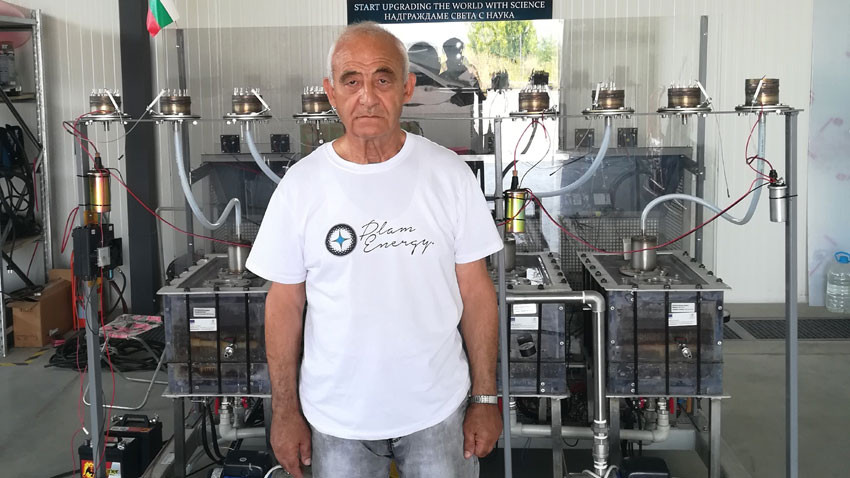"Created from water and turned again to water, producing clean energy” is the way Bulgarian Ilia Valkov described the so-called Brown’s gas. He is known as Australian scientist Yull Brown because he immigrated to Australia in the middle of the 20th century. There in the 1970s he was experimenting with producing oxyhydrogen from water through electrolysis, separating the water molecule into a mixture of hydrogen and oxygen at a ratio of 2:1. This gas mixture is also known as Brown’s gas and when ignited, it converts to water vapor and releases energy. The scientist, however, claimed to have found a method to use implosion characteristics of the gas for producing energy. The scientific community remained skeptical to these claims that contradict laws of thermodynamics and chemistry. Still, Brown’s gas has a number of applications and is used for metal cutting and welding.
Two Bulgarian scientists have recently developed and patented an installation for extraction of Brown’s gas and mineral deposits from seawater. With their project, funded under the "Innovation and Competitiveness" Operational Program in Bulgaria, engineers Chavdar Kamenarov and Plamen Kamenarov have achieved success in the field of renewable energy sources:

“Initially our goal was extracting energy from water, but in the process it turned out that extracted mineral deposits are more valuable than the gas itself,” engineer Chavdar Kamenarov says. "So, instead of getting energy, we received mineral resources. This is how the idea to use the gas in the process of extraction of minerals was born. We obtain these minerals in the form of sludge, extremely rich in polymetals.”
The interesting thing here is that the technology allows selective accumulation of certain metals at the expense of others. Another great advantage is that the technology does not pollute the environment but actually can be used to purify highly polluted industrial waters:
“In addition to extraction of mineral resources, clean drinkable water can be extracted from the sea,” Kamenarov continues. “At a later stage, the technology can be used as an installation for incinerating household waste and converting it into thermal or electrical energy. The very presence of Brown’s gas reduces toxicity but does not remove it completely and construction of air purification installations is required. In addition to the listed applications, the installation we have created can also be used for cleaning tailings ponds where extremely harmful radioactive waste is accumulated. Brown’s gas is successfully used in China to neutralize waste from nuclear power plants.”
At the end of September the invention will be presented in Plovdiv to the scientific community and industry representatives.
English: Alexander Markov
Photos: private library
Measurement equipment installed at the Bulgarian Antarctic base "St. Kliment Ohridski" has been collecting valuable data on solar activity and its relation to the Earth's magnetic field for two months. The research is part of Bulgaria's first polar..
558 Bulgarians aged 18, selected from 1,785 applicants, will be able to embark on their dream journey by train across Europe, learn from other cultures and build new friendships. They have been selected to receive a free travel pass through the..
In the era of increased digitalization and the penetration of artificial intelligence into all spheres of our lives, the professions of people with high qualifications and higher pay are most at risk of extinction. The least affected are jobs that..
Exactly 3 years ago, on February 24, Russia’s invasion of Ukraine began – an event that woke up Europe 77 years after the end of World War II and called..

+359 2 9336 661
